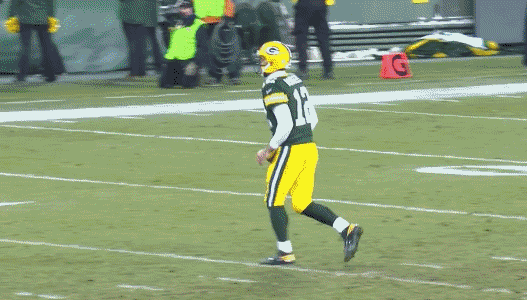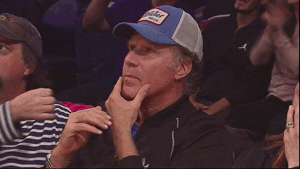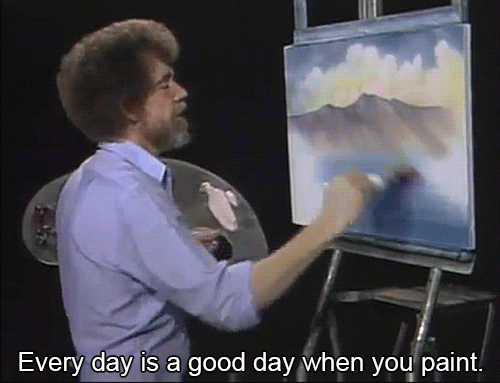|
If only someone had told me earlier in my career! Raise your hand if you have big plans to improve your program this school year.
I know I go into every year with a plan to work on a few things in my program. It might be adjusting your schedule for the coming season. It might be watching those technique videos you've been hoarding. Whatever it is, I know most of us go into the new school year with some kind of plan. The real question is: what's the best use of your time for moving your program forward and what will you actually do? A big part of coaching is trying to figure out where the most leverage is. There are always a million things we can do. The fact is, though, there aren't enough hours in the day (or in the school year!) to do it all. So, the real question to ask is what should we do. What are the two or three things that would have the largest impact? What kinds of things can we accomplish for this coming season that won't just result in more of the same, but will really move the needle in our program? I try to ask myself that every year as we head into the new school year. It seems like the default answer for most of us is to improve our knowledge of tactics or strategies in our sport. The reality, though, is you don't need to be a master of all the "X's and O's" of your sport to have a dominant program. You just don't. You need to have a mastery of what it is that your program does. Your offense. Your defense. Whatever's applicable in your sport. But the truth is no matter what kind of offense or defense you run, no matter what takedown or pinning combinations you teach, there's a program out there that's dominant with that same scheme. If you think about it, what that means is that it really doesn't matter what you teach, from a program development perspective - so long as you believe in it, know your system well and can get others to believe in it too. You can win with any plan that's fundamentally solid. So, if that's true, why do we always want to spend so much time on the "X's and O's"? Well, probably because it's easy, it's fun, it's interesting… and most importantly when we spend our time doing that it feels like we're making real progress with our coaching and our program. But are we? If we come back to our team next season with a fresh set of technical and tactical strategies, but our kids are no more committed than they were before, will it really make a difference? If we have some new game plans or "moves" to show, but our kids aren't any more invested in the team, does it matter? If we know our sport inside and out, but we can't get enough kids on our roster and keep them there, does it do us any good? I love learning new wrestling technique and working on it with our kids every year, but I also know if I really want to keep moving my program forward I need to also keep a sharp focus on what kinds of things I can do to build the commitment, buy-in and engagement on my team. If I'm being honest with myself, that "pebble in my shoe", that thing that really frustrates me with my program, is hardly ever about our technique or strategies.
Get this pebble out of my shoe! It's things like figuring out how to get more kids on my roster, getting kids to care enough to show up for off-season workouts consistently, figuring out to get our team more focused on our team - and less on what they feel entitled to. Maybe even how we can make our kids tougher or how to deal with those one or two pain-in-the-ass parents we all have who can suck the joy out of coaching for us. I may not have all the answers, but there are two things I do know for sure:
Think about it:
But don't think too hard. Getting more kids on my roster: If we create an amazing culture of caring in our program that kids love being a part of, they'll stick around, stay engaged and tell their friends. Whether you like it or not, your program's reputation is going to spread in your community and it will either help you or hurt you. Building kids' commitment: If we create an amazing culture of caring in our program, our kids will feel unconditionally loved by their coaches and teammates and love them right back. Kids will show up more and work harder because they want to be in that environment. They want to be there, AND they want to do everything in their power to not let down those who care about them. Momentum builds motivation, and giving them a reason to start showing up consistently is the first step to building real intrinsic motivation. Getting past the "all about me" culture: If we create an amazing culture of caring in our program where our kids legitimately care about their teammates, suddenly they'll have the empathy they need to stop thinking about themselves and what they're entitled to, and start thinking about how they can help their teammates and their team. Creating mentally tough kids: If we create an amazing culture of caring in our program, where our kids feel unconditionally loved, they're free to compete fearlessly, knowing their value to the team is not dependent on the outcome. When our kids care about their teammates the same way, it's that much harder for them to quit on themselves or the team when things get tough. Dealing with difficult parents: If we create an amazing culture of caring, developing the values and characteristics that will make our kids successful in life as well as sports, suddenly we're able to build real common ground with the parents in our program, who can clearly see we care about their kids and want that for their kids as well. We can use that connection to turn our parents into some of our strongest allies and most vocal supporters - not another headache for us to deal with. If you're like most coaches, these are the kinds of things that will really make an impact on your program. The problem with "culture" is it's a pretty abstract term. People love throwing it around these days. But what does it actually mean? And, more importantly, what specific things can you do to impact your culture? So now, instead of just upping your game with some camps, clinics or technique videos as we start school, I'm gonna give you three questions about your culture to think about. Taking the time to think through your answers might be just what you need to jump start your program this year! Surprise bonus: I'll even do you one better than just giving you some questions - hit reply and send me your answers and I'll take the time to read through them and give you some free feedback... I'm here to help! So, let's dig in: 1. What does your ideal program actually look like? How much time have you actually put into thinking about this? Is it a few loose ideas in your head or have you actually taken the time to define what your perfect program looks like? Most of us haven't. After all, the whole point of creating a strong, positive culture is not to have a strong, positive culture! The point is to create an environment that drives the behaviors that carry your program closer to your ideal vision. How can we build a route to get there (our culture!), if we don't know the destination (our vision)?! Take a few minutes and paint the most vivid picture you can of what you'd like your program to look like.
Actual painting optional. 2. What do you want your program to be all about? What's most important to you? What kinds of qualities and characteristics do you want to define your program? What kind of qualities and characteristics to your athletes need to help make your vision a reality? It seems like a simple question until we really sit down to think about it. It's easy to say things like "commitment" or "work ethic" and keep going from there. We could probably come up with a list of 20+ qualities and characteristics that will help us be successful, but what's most important? How much time have you spent thinking about that? How can you possibly emphasize those values if you haven't defined what they are? 3. What do you want it to feel like for your athletes to be coached by you? How many of you have thought about this one? The only way to really create an amazing culture of caring in your program is through the relationships you build. Relationships are built on trust, relationships are built on respect, and relationships are built on caring. Is that what our kids are feeling? Because, if not, it doesn't really matter what we think. Hate to get all cliché with you, but "no one cares how much you know until they know how much your care." So, do your kids know? Here's the big takeaway: your vision, values and philosophy are the bedrock of your program. As coaches, we get so caught up in the tactics, we sometimes overlook the fact that the tactics we choose are almost meaningless unless their built on a sturdy foundation. You get that right and things can really take off. So what's next? Once you lay the groundwork by thinking through this stuff, the real question is how do we actually make it a lasting part of our culture? What good are all these big ideas if we don't have the concrete strategies and tactics to weave them throughout our program and actually create a Championship Culture? No problem! I've got you there too! To make your life easy, I've put together ten of the most unique, impactful tactics we use in our program to build an amazing team culture around our vision, our core values and our philosophy. Hope it helps! --------------------------------------------------------------------------------------------------------------------------
|








 Pete Jacobson has been a varsity HS coach for almost 20 years. He also works with coaches of all levels through
Pete Jacobson has been a varsity HS coach for almost 20 years. He also works with coaches of all levels through 

